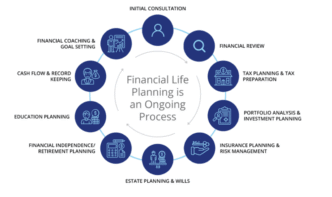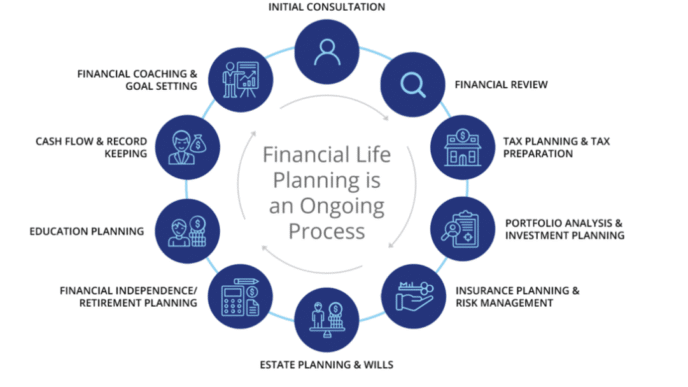Thinking about bringing AI into your business? It’s a smart move, but figuring out where to start can feel like a puzzle. There are tons of AI consultant companies out there, and picking the right one is super important. You don’t want to waste time or money on a company that doesn’t really get what you need. This guide is here to help you sort through the options and find a partner that fits your business like a glove.
Key Takeaways
- Clearly define what you want AI to do for your business before you look for help.
- Check if AI consultant companies have worked in your industry before and understand its specific issues.
- Ask to see examples of their past work and what results they got for other clients.
- Make sure they have good plans for keeping your data safe and using AI ethically.
- Think about if they can grow with you and offer ongoing support, not just a one-time fix.
Defining Your Business Needs for AI Integration
Okay, so you’re thinking about bringing AI into your business. That’s a big step, and honestly, it can feel a bit like trying to assemble IKEA furniture without the instructions sometimes. Before you even start looking at consulting companies, you really need to get clear on what you’re trying to achieve. What specific problems are you hoping AI will solve for your company?
Identifying Specific Business Objectives
Think about the day-to-day operations. Are there tasks that take up way too much time? Are customers complaining about something specific? Maybe you’re seeing a dip in sales in a certain area, or perhaps you just feel like you’re falling behind competitors. Write these things down. It’s not about finding a magic AI bullet for everything; it’s about pinpointing areas where AI could actually make a difference. For instance, if customer service response times are dragging, that’s a concrete objective. Or if you’re spending a fortune on manual data entry, that’s another. Having these clear objectives helps you talk to consultants later and makes sure you’re both on the same page.
Pinpointing Problems AI Can Solve
Let’s get a bit more specific here. Instead of saying ‘improve efficiency,’ try to identify how. Is it about reducing errors in manufacturing? Speeding up invoice processing? Or maybe it’s about getting better insights from your customer feedback data. You could even make a list like this:
- Customer Service: Long wait times, inconsistent answers, difficulty tracking inquiries.
- Operations: Manual data entry errors, slow report generation, inefficient inventory management.
- Sales & Marketing: Low conversion rates, poor customer segmentation, ineffective ad targeting.
- Product Development: Slow feedback loops, difficulty predicting market trends.
Seeing it laid out like this makes it easier to see where AI tools might fit in. It’s about finding those bottlenecks or missed opportunities that are costing you time or money.
Aligning AI Goals with Business Strategy
This is where you connect the dots. Your AI goals shouldn’t exist in a vacuum; they need to support the bigger picture of your business. If your company’s main goal is to expand into new markets, how can AI help with that? Maybe it’s about analyzing market data more effectively or personalizing outreach to potential new customers. If the strategy is to become more customer-centric, then AI solutions that improve customer experience or personalize interactions become a priority. It’s like making sure your new AI project is a team player, working towards the same championship as the rest of the company, not just playing its own game.
Assessing Expertise and Industry Experience of AI Consultants
When you’re looking for help with AI, it’s not just about finding someone who knows the tech. You need to figure out if they really get your business and your industry. It’s like hiring a plumber – you want someone who knows pipes, sure, but it helps a lot if they’ve worked on similar houses before.
Evaluating Technical Proficiency in AI Domains
First off, let’s talk tech. AI is a big field, with lots of different specialties. You need to know if the consultants are good at the specific types of AI that matter for what you want to do. Are they pros in machine learning, natural language processing (NLP), or maybe computer vision? It’s worth asking them about the tools and platforms they use. Do they align with what you already have or plan to use?
Here’s a quick rundown of common AI areas:
- Machine Learning (ML): Building systems that learn from data without being explicitly programmed. Think recommendation engines or fraud detection.
- Natural Language Processing (NLP): Helping computers understand and process human language. Chatbots and sentiment analysis fall here.
- Computer Vision: Enabling computers to ‘see’ and interpret images or videos. This is used in quality control or autonomous vehicles.
- Generative AI (GenAI): Creating new content, like text, images, or code. Think AI writing assistants or image generators.
It’s important they can explain their technical skills in a way you can understand. If they start using a lot of buzzwords you don’t get, that’s a bit of a warning sign.
Reviewing Proven Track Records in Your Sector
This is where industry experience really shines. A consultant who has worked with businesses like yours, facing similar problems, will likely get up to speed much faster. They’ll already know the common pitfalls, the data quirks, and maybe even the regulatory hurdles specific to your field. It’s not always a deal-breaker if they haven’t worked in your exact industry, but they need to show they can learn quickly and adapt their knowledge.
Ask for examples of projects they’ve completed. What were the results? Did they help a company similar to yours? Seeing actual case studies or hearing from past clients in your sector can tell you a lot. It’s good to see they’ve not only built AI solutions but that those solutions actually made a difference.
Understanding Industry-Specific Challenges and Regulations
Every industry has its own set of rules and unique issues. For example, healthcare has strict patient data privacy laws (like HIPAA), while finance has its own set of compliance requirements. An AI consultant needs to be aware of these. They should be able to talk about how they handle data security and privacy in line with your industry’s standards.
It’s also about understanding the day-to-day realities of your business. Do they know what kind of data you typically work with? Do they understand the competitive pressures you face? A consultant who has this background knowledge can propose AI solutions that are not just technically sound but also practical and relevant to your specific operational environment. They should also be up-to-date on any new regulations, like the EU AI Act or similar local laws, that might affect how AI can be used in your business.
Evaluating AI Consulting Methodologies and Technologies
So, you’ve figured out what you want AI to do for your business. That’s a big step! But how do these consultants actually do it? It’s not just about having smart people; it’s about how they work and what tools they use. You don’t want someone showing up with a hammer when you need a scalpel, right?
Understanding Their Approach to AI Tools
Think about the tools they use. Are they sticking to the latest, proven tech, or are they experimenting with things that might not be ready for prime time? You’ll want to ask about the specific AI domains they’re comfortable with – things like machine learning, natural language processing (NLP), or computer vision. It’s also good to know if they have experience with the platforms and frameworks that might already be in your company’s tech toolbox. A consultant who knows how to work with your existing systems makes life a lot easier.
Assessing Scalability and Adaptability of Solutions
This is a big one. The AI solution they build for you today needs to work tomorrow, and probably the day after that. Ask them how their solutions can grow with your business. Can it handle more data? More users? More complex tasks? A good consultant will design something that isn’t just a one-off fix but can adapt as your needs change and as AI technology itself evolves. You don’t want to be back at square one in a year.
Ensuring Alignment with Your IT Infrastructure
This is where things can get tricky. The coolest AI model in the world won’t do much good if it can’t connect with your current computer systems. You need to make sure the consultant understands your IT setup. How will their AI solution integrate? Will it require a massive overhaul of your existing infrastructure, or can it plug in relatively smoothly? They should be able to explain this clearly, without making your eyes glaze over. It’s about making sure the new tech plays nice with the old tech.
Reviewing Case Studies and Client References
So, you’ve got a shortlist of AI consulting companies. What’s next? Before you sign anything, you really need to see what they’ve actually done. This is where case studies and client references come in. Think of it like checking reviews before buying something online – you want to know if other people had a good experience.
Examining Demonstrable Results and Measurable Impact
Don’t just look at fancy descriptions. You need to see numbers. Did the AI solution they built actually make a difference? Did it save money? Did it speed things up? Look for case studies that show concrete results. For example, a company might say they improved customer service. That’s nice, but did they reduce wait times by 20%? Did they increase customer satisfaction scores by 15 points? The best case studies will clearly state the problem, what the AI solution did, and the specific, measurable outcomes. It’s like looking at a before-and-after picture, but with data.
Here’s what to look for:
- Revenue Uplift: Did their AI help sell more products or services?
- Cost Reduction: Did it make operations cheaper?
- Process Acceleration: Did it make tasks happen faster?
- Customer Satisfaction: Did clients or customers become happier?
Gaining Insights from Testimonials and Past Clients
Testimonials are good, but talking to actual clients is even better. If a consulting firm gives you references, actually call them. Ask about their experience. Was the consultant easy to work with? Did they understand the business? Were there any surprises? Sometimes, a quick chat can reveal more than a written testimonial ever could. You want to hear about how the firm handled challenges, not just the smooth sailing parts. It gives you a real feel for their approach and how they handle problems when they pop up.
Verifying the Effectiveness of Deployed AI Solutions
It’s one thing to build an AI model; it’s another to make sure it works well in the real world, day in and day out. Ask the consultants about how they ensure their solutions keep working as expected. Do they have ways to monitor the AI after it’s live? What happens if the AI starts making mistakes or its performance drops? A good firm will have a plan for this. They should be able to show you how they’ve successfully integrated AI into existing systems and how those systems have performed over time. This shows they’re not just about the initial setup, but about long-term success.
Considering Customization vs. Off-the-Shelf AI Solutions

So, you’re looking into AI for your business. That’s great! But now you’ve hit a fork in the road: do you go with a ready-made AI solution, or do you need something custom-built? It’s a big question, and honestly, there’s no single right answer for everyone. Think of it like buying clothes. Sometimes a standard size off the rack fits perfectly, and other times you really need a tailor to get it just right.
Seeking Tailored Strategies for Unique Business Contexts
Off-the-shelf AI tools can be tempting. They’re often quicker to implement and might seem cheaper upfront. But here’s the thing: your business isn’t like every other business. You have your own way of doing things, your own specific problems, and your own goals. A generic AI solution might handle some basic tasks, but it probably won’t truly understand what makes your company tick. That’s where custom solutions shine. A good AI consultant will spend time really digging into your operations. They’ll look at your data, how your teams work, and what you’re trying to achieve. This deep dive allows them to build or adapt AI models that fit your exact needs, not just a general idea of them. It’s about making AI work for you, not the other way around.
Understanding How Models Fit Specific KPIs
When you’re looking at AI, you’ve got to think about what success looks like. What numbers are you trying to move? Are you aiming to cut down on customer wait times, boost sales by a certain percentage, or reduce errors in your production line? These are your Key Performance Indicators, or KPIs. Off-the-shelf solutions often come with their own set of metrics, which might not line up with what you actually care about. A custom approach means the AI models are designed from the ground up to target your specific KPIs. The consultants should be able to show you exactly how their proposed AI solution will impact those numbers. It’s not just about having AI; it’s about having AI that demonstrably helps you hit your targets.
Prioritizing Consultative Support Over Simple Deployment
Sometimes, companies just want to ‘deploy’ AI and be done with it. They see it as a one-and-done tech project. But AI is rarely that simple. It often needs tweaking, updating, and ongoing support as your business evolves and the technology changes. This is why the type of support you get from a consultant matters a lot. Are they just dropping off a software package and leaving you to figure it out? Or are they acting as a true partner, guiding you through the process, helping your team understand the AI, and being there when things need adjusting? Look for firms that emphasize a consultative approach. This means they’re invested in your long-term success, not just closing a deal. They should be willing to:
- Explain the AI’s workings in plain terms.
- Help train your staff to use and manage the AI.
- Be available for ongoing maintenance and improvements.
- Discuss how the AI strategy aligns with your broader business goals.
Choosing between custom and off-the-shelf isn’t just a technical decision; it’s a strategic one that impacts how well AI integrates into your business and delivers real results.
Addressing Ethical Implications and Data Security
Ensuring Adherence to Ethical AI Practices
When you bring AI into your business, it’s not just about the tech. You’ve got to think about the right way to use it. This means looking at how the AI consultant company handles things like fairness and making sure the AI doesn’t accidentally pick on certain groups of people. It’s really important that their approach aligns with your company’s values. Ask them directly about their process for spotting and fixing bias in the AI models they build. Do they have a plan for when AI might change jobs? A good partner will have thought about this and have ideas on how to manage it responsibly.
Evaluating Data Privacy and Security Measures
Your business data is sensitive, and you need to know it’s safe. When talking to AI consultants, ask them point-blank about their data security practices. What rules do they follow, like GDPR or CCPA? How do they keep your data protected from hackers or unauthorized eyes? They should be able to explain things like:
- How they encrypt your data.
- Who gets access to what data and why.
- What happens if there’s a security breach.
Don’t be afraid to ask for details. A firm that’s cagey about this is a big red flag.
Mitigating Risks of Bias and Ensuring Transparency
AI can sometimes make decisions that seem unfair because the data it learned from had hidden biases. It’s like teaching a kid using only books from one perspective – they’ll only know that one way. You need to ask the consultants how they check for and fix these biases. Transparency is key here too. Can they explain how the AI makes its decisions, at least in a way that makes sense to you? You don’t want a black box running your business. Understanding the ‘why’ behind AI recommendations helps you trust the system and use it better. It’s about building AI that’s not just smart, but also fair and understandable.
Analyzing Costs, ROI, and Long-Term Partnership
So, you’ve figured out what you need and who might be able to help. Now comes the part that often makes people sweat a little: the money. It’s not just about the sticker price, though. You need to look at the whole picture – what you’re getting for your money and what you can expect down the road.
Requesting Detailed Cost Breakdowns
When you get proposals, don’t just look at the total number. Ask for a clear breakdown of everything. What exactly are you paying for? Is it hours worked, a fixed project fee, or something tied to results? Different firms have different ways of charging, and you need to pick one that makes sense for your project and how much risk you’re comfortable with. Be wary of firms that promise huge returns right away without showing you how they’ll get there. It’s like someone promising you’ll win the lottery just because they sold you a ticket.
Here’s a general idea of what to look for in a breakdown:
- Consultant Fees: Who is doing the work and what’s their rate?
- Software/Tooling Costs: Are there specific AI platforms or licenses needed?
- Infrastructure: Will you need new hardware or cloud services?
- Training & Support: What happens after the project is done?
- Contingency: Is there a buffer for unexpected issues?
Forecasting Potential Return on Investment
This is where you think about the payoff. How will this AI investment actually help your business? Will it save you money by making things more efficient? Will it help you make more money by finding new customers or improving sales? A good consultant should be able to help you figure this out, showing you how their work connects to your business goals. They should be able to point to past projects where they’ve made a real difference, not just built something cool.
Think about these potential benefits:
- Cost Savings: Automating tasks, reducing errors, optimizing resources.
- Revenue Growth: Better customer insights, new product development, improved marketing.
- Efficiency Gains: Faster processes, better decision-making, streamlined operations.
Establishing a Collaborative, Long-Term Relationship
Choosing an AI consultant isn’t a one-and-done deal. AI is going to become a bigger part of how you do business, so you want a partner who’s in it for the long haul. Look for a company that wants to work with you, not just for you. They should be interested in your ongoing success and willing to help your AI solutions grow and adapt as your business changes. This means they should offer support after the initial project and be available for updates and improvements. It’s about building something together that lasts.
Wrapping Up Your AI Partner Search
So, you’ve looked into what AI consultants can do and how to pick the right one. It’s a big step, for sure. Remember, the goal isn’t just to get some fancy AI tech in place. It’s about finding a partner who really gets your business, knows their AI stuff, and can help you actually use it to make things better. Take your time, ask lots of questions, and trust your gut. Getting this right means you’ll have a solid plan and a good team to help you make the most of AI, without all the usual headaches.
Frequently Asked Questions
What exactly is an AI consulting firm and what do they do?
Think of an AI consulting firm as a special helper for businesses. They use something called artificial intelligence, or AI, to help companies solve tricky problems. They can help figure out the best way to use AI, build AI tools, connect them to your business, look at your data, and even help after the AI is set up. They make sure the AI fits what your business needs and wants to achieve.
Why should a business hire an AI consultant instead of hiring their own AI experts?
It can be hard and expensive to find and hire your own AI experts because there aren’t many of them, and they often cost a lot. AI projects also need lots of different skills. An AI consulting firm already has a team of these experts ready to go. This means you can start using AI faster, with less risk, and often save money compared to building your own team from scratch.
What’s the most important thing to look for when picking an AI consultant?
One of the most important things is to find a firm that has worked with businesses like yours before. They should also be good at the specific AI technologies you need, like understanding language or making smart predictions. Asking for examples of their past work and talking to their previous clients can show you if they’re good at solving real business problems with AI.
Do AI consultants only offer one type of AI solution, or can they create custom ones?
Good AI consultants know that every business is different. While some might have ready-made tools, the best ones will take the time to understand your unique business, your data, and what you want to achieve. They can then create or adjust AI tools specifically for you, making sure the AI helps your business in the best way possible.
What about safety and fairness when using AI? How do consultants help with that?
AI can sometimes have problems with privacy, security, or being unfair. AI consultants know about these issues. They help make sure the AI follows the rules for keeping data safe and private. They also work to prevent the AI from being biased and make sure it’s clear how the AI makes its decisions, so your business can use AI responsibly.
How do I know if an AI consultant will be a good partner for the long run?
Choosing an AI consultant is like picking a partner for a journey. You want someone who will stick around. Look for a firm that offers ongoing help, not just a one-time setup. They should be able to help your AI grow as your business changes and new AI ideas come out. A good partner will be committed to helping your business succeed with AI over time.














